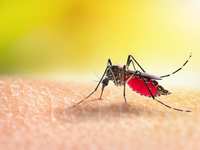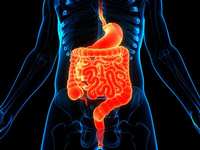- Categories :
- More
Aflatoxin: A Common Problem

by Mila McManus, MD
Aflatoxin is identified as a human carcinogen and found in human tissues. It is one of many harmful mycotoxins that can enter the body and cause illness. Two species of mold, Aspergillus flavus and Aspergillus parasiticus, produce aflatoxin. Once ingested, the body turns it into by-products with high carcinogenic potential.
People burdened with aflatoxin experience symptoms such as food allergies, developmental delay, growth impairment, damage to the gut, liver, and kidneys, inflammation affecting the heart, and increased risk for liver cancer, viral hepatitis, and parasite infestation. Research has shown that consuming aflatoxin through the food supply is one of the main causes of liver disease.
Aflatoxin develops in commonly eaten foods that are grown in wet, warm environments. This includes peanuts, peanut butter, corn, nuts, and other grains. While people in third-world countries are more likely to be impacted by aflatoxin poisoning, it is also common in developed nations where corn and peanut products are predominant in the food supply. Even a tiny amount of aflatoxin in the food supply can spread and cause problems. The severity of the impact will depend on factors such as current state of health, level and duration of exposure, strength of immune and digestive systems, and overall diet quality.
Here are some of the best ways to avoid aflatoxin:
- Limit or avoid consuming peanuts, corn, and processed foods made with them.
- Ideally, store grains and nuts at home for a short period in cool, dry areas to prevent mold growth. Freezing can prolong freshness.
- Buy peanuts, corn, grains, and nuts as fresh as possible, grown close to your location rather than in another country and shipped overseas. Small, organic farmers are more likely to harvest at the right time and store it correctly.
- Soak, sprout, and ferment grains, beans, legumes, nuts, and seeds to reduce mold content.
- Some evidence suggests that eating antioxidant-rich, detoxifying vegetables such as carrots and celery can help clean the liver and reduce the carcinogenic effects of aflatoxin.
As we investigate the root causes of our patients’ symptoms, testing for mycotoxins is often necessary to create an effective treatment plan. Call (281) 298-6742 to inquire about the available testing options.
Be well!
Resources:
Levy, Jillian (April 18, 2024). Aflatoxin: How to avoid this common Food Carcinogen. Draxe.com, nutrition articles.

















